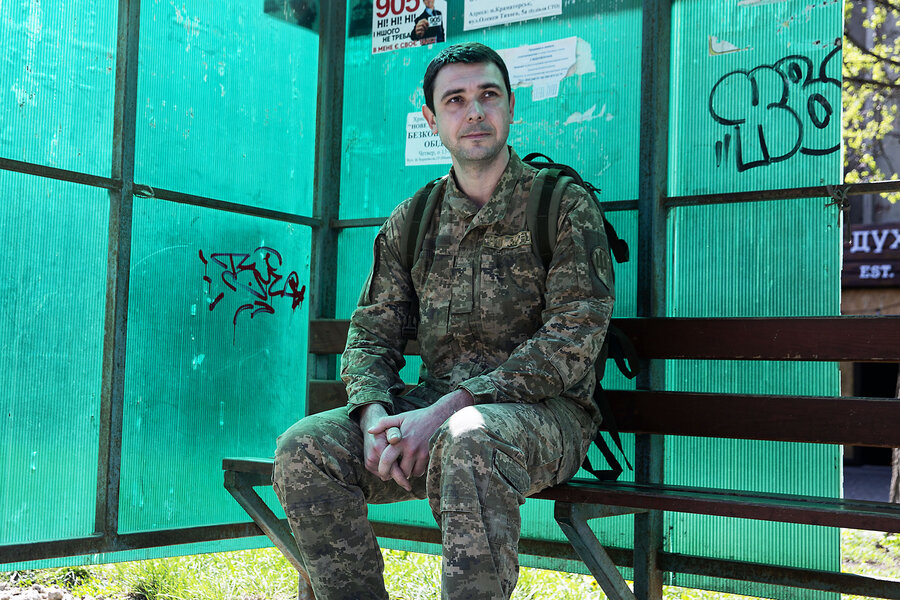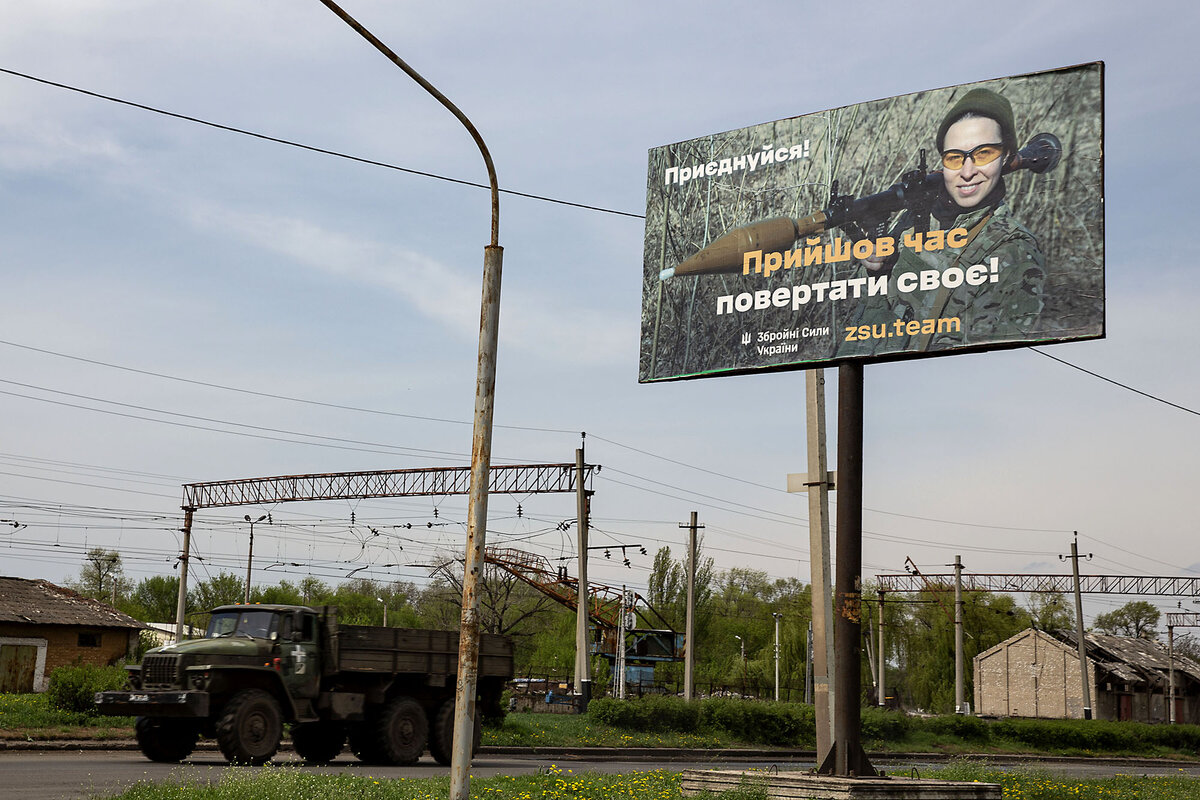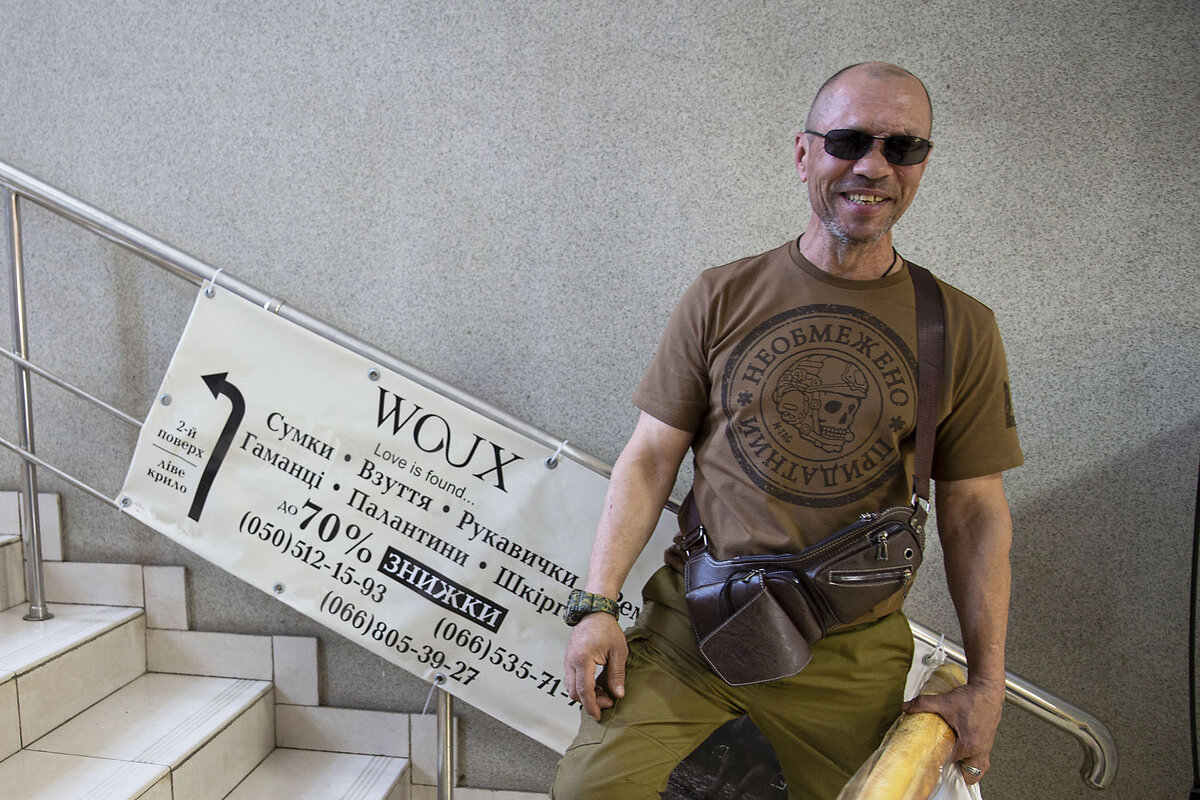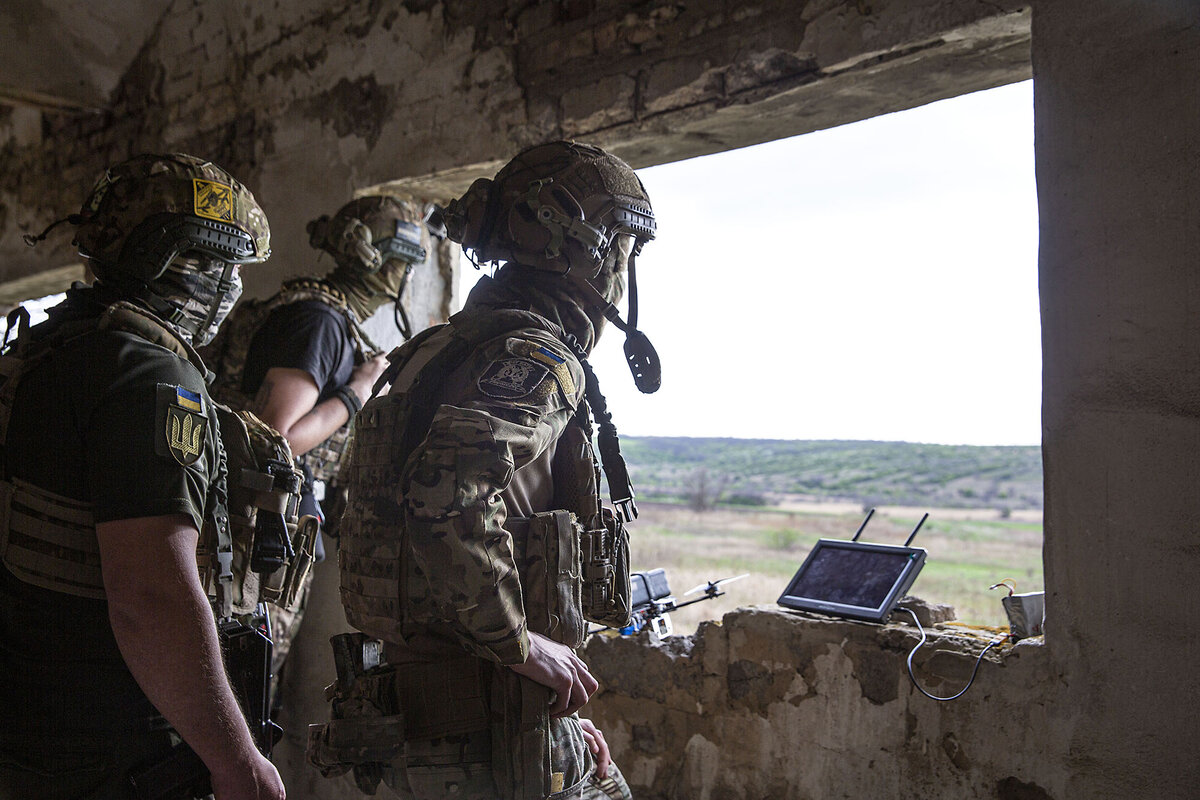Ukraine is trying to rally new troops. Vets say weapons are more urgent.
Loading...
| Donetsk region, Ukraine
While Ukraine’s tired service members wait for military aid from the West amid increased attacks from Russia, they received some welcome news this week. On Tuesday, President Volodymyr Zelenskyy signed new measures into law that are intended to boost army ranks through a mix of conscription incentives and penalties for draft dodgers.
The mobilization drive could bring significant relief to assault brigades and drone squads in the combat zones of the Donetsk region. The pressure of Russian aerial guided bombs and rockets is constant here. But others stress that fighting for one’s country is a choice that must be made freely and that Ukraine’s need for weapons is far more desperate than that for fresh recruits.
“We have a shortage of people,” says Yevhen, a combat engineer from Kyiv fighting in the east. “I am not a fan of forced mobilization, but I don’t see another way. The people who stayed in civilian life don’t have the volunteer spirit, but we still need people in the army. The people who do have military spirit have already mobilized. Many have been killed or wounded. All of us are tired.”
Why We Wrote This
Ukraine is scrambling to bolster its defenses, and on Tuesday rolled out a new, tougher conscription law. But with resupplies still snared in Washington, some veterans warn that more troops only offer so much help.
Still, the new measures are controversial due to the pressures they put on Ukrainian society, particularly on citizens who have actively avoided the front lines.
“This is the first time that the state decides it is necessary to spread out mobilization to all citizens,” notes Ihor Kozii, a military expert for the Institute for Euro-Atlantic Сooperation who is living in Lviv. “If you look in our constitution, there is an obligation for every able man and woman to defend and protect the country. ... The big challenge now is how to restore a system of patriotic behavior to society.”
Capacity to serve
The new law is meant to tighten up holes in Ukraine’s draft, which all men ages 16 to 60 were required to register for after the war began. Under the new legislation, Ukrainian men risk losing their driver’s licenses – or their passports if they are living abroad – if they fail to keep their draft registry up to date. (The harshest and rarely enforced penalty for draft dodging, three to five years in prison, remains unchanged under the new law, however.)
There are also improved incentives to join up. These include 15 straight days of leave, the opportunity to choose which unit they join, and bonus pay and time off for destroying or capturing enemy war materiel. Families of personnel killed in action will also be entitled to a one-time payment of $380,000.
Such carrots and sticks are needed to reverse three decades of decline and downsizing by the Ukrainian armed forces, says Mr. Kozii. The army needs to mobilize 300,000 to 500,000 people, according to the assessments by the current and previous chiefs of staff.
But even that won’t be enough, due to at present a U.S. bill that would supply Ukraine with arms being held up by Congress. “Our government, our chiefs of staff, they realize that humans on the military field without weapons are nothing more than cannon meat [fodder],” he adds. “In the last two years, we had situations where we created brigades without APCs [armored personnel carriers] or without tanks. Everyone was brought together, but there were no weapons.”
“I don’t think we need large-scale mobilization,” says Roman Kaidan, in Kramatorsk taking a 10-day vacation from the eastern front. The 50-something soldier is wearing a T-shirt that says, “unlimitedly fit,” as in fit to serve.
“We can finish this war. Just give us the weapons,” he says. “It’s better to patch us up, the older experienced guys, than to send young guys to the front who are green and don’t know what to do. I would gladly save a young person’s life.”
“A question of our survival”
The new legislation also tackles how the military handles disabilities. Fake medical exemptions are one of many tactics used to dodge the draft.
“It is shameful,” says Yevhen, another soldier serving near Bakhmut. “People take pride in making up creative excuses to avoid serving in the army. This is demoralizing for all of society. ... If you don’t want to go voluntarily, it should be imposed. We live in times of war. Everyone needs to be in war mode. We will still have Russia in our backyard in 10 or 20 years. All of society needs to be useful militarily – know how to shoot and dig trenches.”
Many serving on active front lines share that view. A poll by Ukraine’s Institute of Social and Political Psychology published this month found that 43% of respondents say they are ashamed of men who evade mobilization. But an even larger share (53.9%) agreed with the statement, “Those who avoid mobilization can be understood – no one wants to die.”
Svitlana Chunikhina, deputy director of the institute that conducted the poll, is not surprised. The initial shock of Russia’s invasion galvanized people into action and overrode feelings of fear, she says. Now people see the asymmetry of power between the two armies, the delays in military aid, the failure to turn the tide of war in 2023 as hoped, and mounting casualties.
“We do realize that the most important thing that is happening in our country is happening on the front line,” says Dr. Chunikhina, who sees men grappling with the issue of serving at her private psychological practice. “It is a question of our survival. That’s why so many men in the rear live with a strong feeling of shame. But at the same time, fear is also on their minds.”
Those doing the actual fighting stress that the will and desire to serve is essential to be of any value on the front. Without it, conscripts are a burden rather than a boon – freezing in the heat of battle or suffering mental breakdowns. Others point out that there are thousands currently serving in the army who have not actually set foot in a combat zone.
“It makes no sense to have people in the army who don’t want to serve,” says Volodymyr, a member of the territorial defense unit of Kyiv now fighting around Chasiv Yar. “If a person wants to be mobilized and has the motivation to fight, he will be a good fighter. He can learn the ropes here. If the person dragged into the war is afraid and does not want to fight, that just creates risks for fellow soldiers.”
Reporting for this story was supported by Oleksandr Naselenko.











